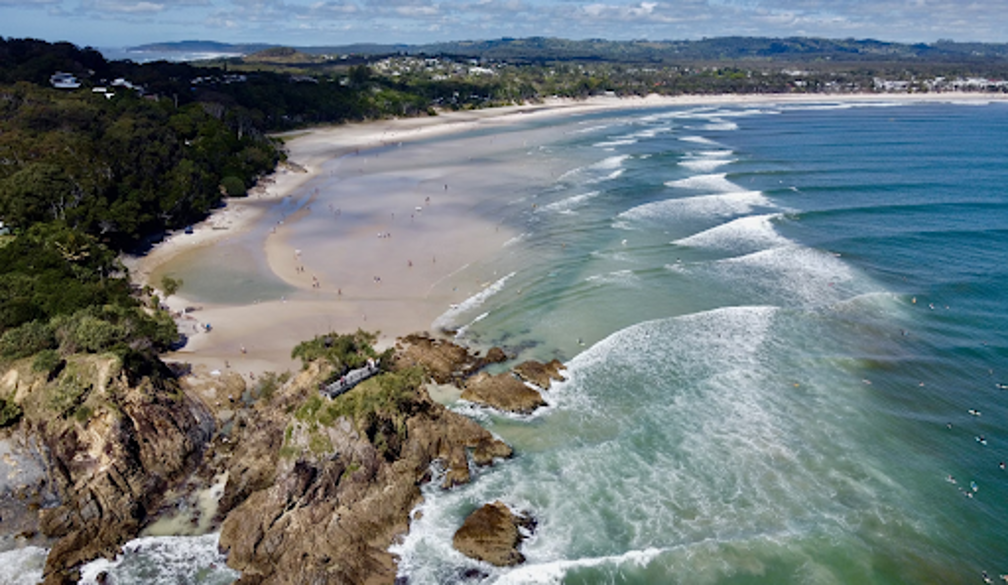How to Camp Sustainably in Byron Bay: Eco-Friendly Tips

Camping in Byron Bay is a fantastic way to soak up nature, from beautiful beaches to lush rainforests. It’s no wonder Byron Bay camping is on so many bucket lists! But with more and more people visiting, it’s important to camp in a way that helps keep this stunning area clean and green. So, if you’re heading to Byron Bay for a camping trip, here are some easy, eco-friendly tips to make sure you leave a positive impact.
1. Choose Eco-Friendly Campsites
The first step to a greener camping trip is picking a campsite that’s already doing its part for the environment. Byron Bay has quite a few campsites that focus on sustainability—think solar power, recycling stations, and even compost toilets. Do a bit of research before you go and find one that matches your eco-friendly goals.
What to look for:
- Solar-powered setups
- Recycling and composting bins
- Water-saving showers and toilets
- Campsites that promote ‘Leave No Trace’ practices
2. Pack Reusable Gear
A simple way to cut down on waste is to pack gear you can use over and over again. Swap out single-use plastics for things like reusable water bottles, food containers, and cutlery. It’s not only better for the planet but also makes your trip feel a bit more organised.
Eco-friendly gear ideas:
- Reusable water bottles and food containers
- Stainless steel or bamboo cutlery
- Cloth napkins and towels instead of paper ones
- Solar-powered lights and chargers
- Beeswax wraps instead of cling film
3. Bring a Waste Management Plan
Trash can pile up quickly when you’re camping, but with a bit of planning, it doesn’t have to. Make a plan for dealing with waste before you even leave home. Bring along reusable bags to separate recyclables, general rubbish, and compostables, and make sure you know where the nearest recycling facilities are.
Tips for managing waste:
- Pack separate bags for recyclables, compost, and general trash
- Take all your rubbish with you, even if it’s biodegradable (it can still harm wildlife)
- Avoid over-packaged products; bring food in reusable containers instead
- Make sure you leave no litter behind, even tiny things like bottle caps or food scraps
4. Respect Local Wildlife
Byron Bay is full of incredible wildlife, from kangaroos and birds to marine life like dolphins and turtles. Respecting these animals and their habitats is key to sustainable camping. Always keep a safe distance from any wildlife you encounter, and avoid feeding them, as it can be harmful to their health and behaviour.
Wildlife-friendly camping tips:
- Keep your food stored securely to avoid attracting animals to your camp
- Observe wildlife quietly and from a distance
- Use biodegradable soaps and cleaning products to avoid polluting natural water sources
- Stick to designated trails to avoid damaging sensitive habitats
5. Use Eco-Friendly Toiletries
Regular soaps, shampoos, and other toiletries can contain chemicals that aren’t great for the environment, especially if they end up in waterways. Opt for biodegradable toiletries instead, and make sure you dispose of any greywater properly.
Green camping essentials:
- Biodegradable soap, shampoo, and toothpaste
- Natural insect repellent
- Reef-safe sunscreen that doesn’t harm marine life
- Refillable bottles for your toiletries to cut down on waste
6. Choose Low-Impact Activities
Byron Bay is known for its range of outdoor activities, from surfing to hiking. When planning your trip, think about low-impact activities that let you enjoy nature without leaving a trace. Hiking, swimming, and wildlife watching are great options that won’t damage the environment.
Sustainable activity ideas:
- Hike the scenic trails around Cape Byron or Mount Warning
- Snorkel or paddleboard in protected marine areas
- Join a guided eco-tour to learn about local wildlife and ecosystems
- Participate in a beach clean-up while you’re there
7. Be Smart About Water Use
Water conservation is key, especially when camping in areas that might experience droughts. Even though Byron Bay is lush and green, it’s still smart to watch your water use. Simple things like turning off the tap while brushing your teeth or taking shorter showers can go a long way.
How to save water while camping:
- Take short showers and turn off taps when not in use
- Use biodegradable wipes for quick clean-ups instead of wasting water
- Wash dishes in a basin and avoid running water; dispose of soapy water away from natural streams
- Bring a refillable water container instead of buying single-use plastic bottles
8. Leave No Trace
This is a big one. The ‘Leave No Trace’ principle is all about making sure you leave your campsite exactly how you found it, if not better. That means packing out everything you brought in, including rubbish, food scraps, and personal items, and not disturbing the environment around you.
Leave No Trace principles:
- Take all your rubbish home with you, even small items like wrappers or bottle caps
- Avoid picking flowers, plants, or taking anything from nature
- Set up camp in designated areas to minimise damage to vegetation
- If you build a campfire, use existing fire pits and make sure it’s fully extinguished before you leave
9. Practice Campfire Safety
Everyone loves a good campfire, but they can also be dangerous if not handled properly. Check local fire restrictions before lighting any fires, especially during the summer months when bushfire risks are higher around Byron Bay.
Campfire safety tips:
- Only use designated fire pits, if they’re available
- Keep your campfire small and never leave it unattended
- Make sure the fire is completely out before you go to sleep or leave the area
- Consider using a portable camp stove instead of a campfire for cooking
10. Support Local and Eco-Friendly Businesses
Finally, one of the best ways to make your Byron Bay camping trip more sustainable is by supporting local businesses. Byron Bay has plenty of eco-friendly shops, cafes, and markets that focus on sustainability. Buying local reduces the carbon footprint of your trip and helps the local community thrive.
How to shop local:
- Check out farmers' markets for fresh, local produce
- Look for eco-friendly camping gear from local suppliers
- Eat at cafes and restaurants that use locally sourced, sustainable ingredients
By keeping these eco-friendly tips in mind, you can make your Byron Bay camping experience better for both you and the environment. Small changes can have a big impact, so pack smart, tread lightly, and enjoy all the natural beauty Byron has to offer.























